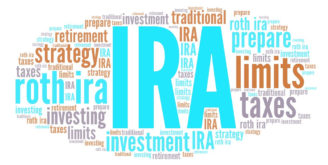How to start investing on a small budget? Complete guide
Learn how to start investing on a small budget in our complete guide. Discover practical tips and all the details!
Understand how to start investing with a small budget

Investing can seem far away or complicated, especially when you’re starting out on a small budget. However, the world of investments is more accessible than ever, and anyone can start building wealth, even with just a few dollars to their name.
Want to know more? In this guide, we’ll show you how you can take your first steps into the world of investments in a simple and effective way, without needing large initial sums.
Where to start?
If you’re wondering how to start investing with little money, you’re not alone. Many people have the desire to invest, but believe it’s only possible with large sums of money. However, the reality is different.
Today, you can start your journey with modest budgets and gradually build up a diversified and solid portfolio.
1. Define your objectives
First of all, it’s essential to understand what you want to achieve with your investments. Do you want to save for retirement? Buy your own home in the future? Or perhaps build up an emergency reserve?
Having clear goals helps shape your investment strategy. If you’re thinking about retirement, for example, the Betterment website is an excellent tool that offers automated investment services, allowing you to set specific goals and build a plan that suits your budget.
2. Choose a certified platform
Today, there are several digital platforms that allow you to invest with small budgets. These platforms simplify the process and many of them charge low fees or even offer free investments.
Applications such as Robinhood allow you to invest in stocks and ETFs (Exchange-Traded Funds) without having to pay commissions, making it easier to get started with small budgets.
With just a few clicks, you can invest in companies and track your investments directly from your cell phone.
3. Start with funds and ETFs
Investing in Mutual Funds or ETFs (exchange-traded funds) is an excellent way to diversify your investments with little money.
These funds allow you to group together different assets, reducing your risk by investing in several areas.
The main advantage of ETFs is that they track specific indices, such as the S&P 500, and offer exposure to large sectors of the economy, such as technology, health and energy, for example.
In addition, many brokers offer ETFs with a low initial cost, allowing for a small initial investment.
4. Consider micro-investing
If you want to start with even less money, micro-investing can be a great option. Platforms automatically “round up” your purchases and invest the leftovers in your account.
For example, if you buy something for $2.50, the app will invest the remaining $0.50. Over time, these small contributions add up and help you build a diversified portfolio with ease.
5. Financial education and monitoring
Investing, especially with little money, requires patience and knowledge. It’s important to always keep up to date with the financial markets and to learn more about the financial products you’re using.
Websites offer detailed analysis, guides and articles on how to start investing, including topics such as taxes, risks and the types of investments available.
Conclusion
Starting to invest on a small budget is not only feasible, it can also be an excellent way to build wealth over time.
Many people believe that you need to have large sums of money to start investing, but the reality is that anyone can take the first steps towards solid financial health, even with just a few dollars to their name.
Today, thanks to digital tools and platforms, access to the financial market is more democratic.
With the advance of technology, transaction costs have fallen dramatically, and investing has never been more accessible for beginners. Many of these services allow you to start with low amounts, without the need for large initial sums.
So if you still think you don’t have enough money to invest, think again! With small steps, you can start on a safe and promising financial journey.
Over time, these small contributions add up, allowing you to create a solid foundation for future expansion and financial growth.





